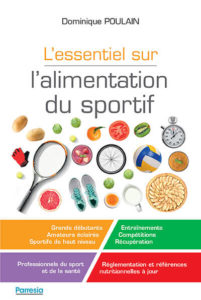Impact du Lycopène sur le métabolisme lipidique et le risque cardio-vasculaire
Effects of olive oil and tomato lycopene combination on serum lycopene,lipid profile, and lipid oxidation.
Auteur(s): Ahuja K.-D., Pittaway J.-K., Ball M.-J.
Réf.: Nutrition. 2006 Jan 12;
Adresse: School of Human Life Sciences, University of Tasmania, Launceston, Tasmania, Australia.
Mots clés: …
Résumé : Objective / We compared the effect of two diets (a diet high in olive oil and a diet high in carbohydrate and low in olive oil) with high lycopene content and other controlled carotenoids on serum lycopene, lipids, and in vitro oxidation.
Méthods: This was a randomized crossover dietary intervention study carried out in Launceston, Tasmania, Australia in healthy free-living individuals. Twenty-one healthy subjects who were 22 to 70 y old were recruited by advertisements in newspapers and a university newsletter. A randomized dietary intervention was done with two diets of 10 d each. One diet was high in olive oil and the other was high in carbohydrate and low in olive oil; the two diets contained the same basic foods and a controlled carotenoid content high in lycopene.
Résults : Significant increases (P < 0.001) in serum lycopene concentration on both diets were to similar final concentrations. Higher serum high-density lipoprotein cholesterol
(p < 0.01), lower ratio of total cholesterol to high-density lipoprotein (p < 0.01), and lower triacylglycerols (p < 0.05) occurred after the olive oil diet compared with the high-carbohydrate, low-fat diet. There was no difference in total antioxidant status and susceptibility of serum lipids to oxidation.
Conclusions : Serum lycopene level changes with dietary lycopene intake irrespective of the amount of fat intake. However, a diet high in olive oil and rich in lycopene may decrease the risk of coronary heart disease by improving the serum lipid profile compared with a high-carbohydrate, low-fat, lycopene-rich diet.
Fiche Pratique
Lycopène ? Peut-être ; Tomate ? Sans aucun doute. (Pdf, 1 page, 1,57 Mo).
Source : www.aprifel.com
Santé et Performance

Notre Société savante a pour mission de promouvoir la Nutrition du sport, dans un objectif de protection de la santé, de recherche de performance, et de prévention des conduites addictives.
Nous proposons des colloques et des journées de formation, fondés sur une actualisation des connaissances scientifiques...
> Santé et Performance

